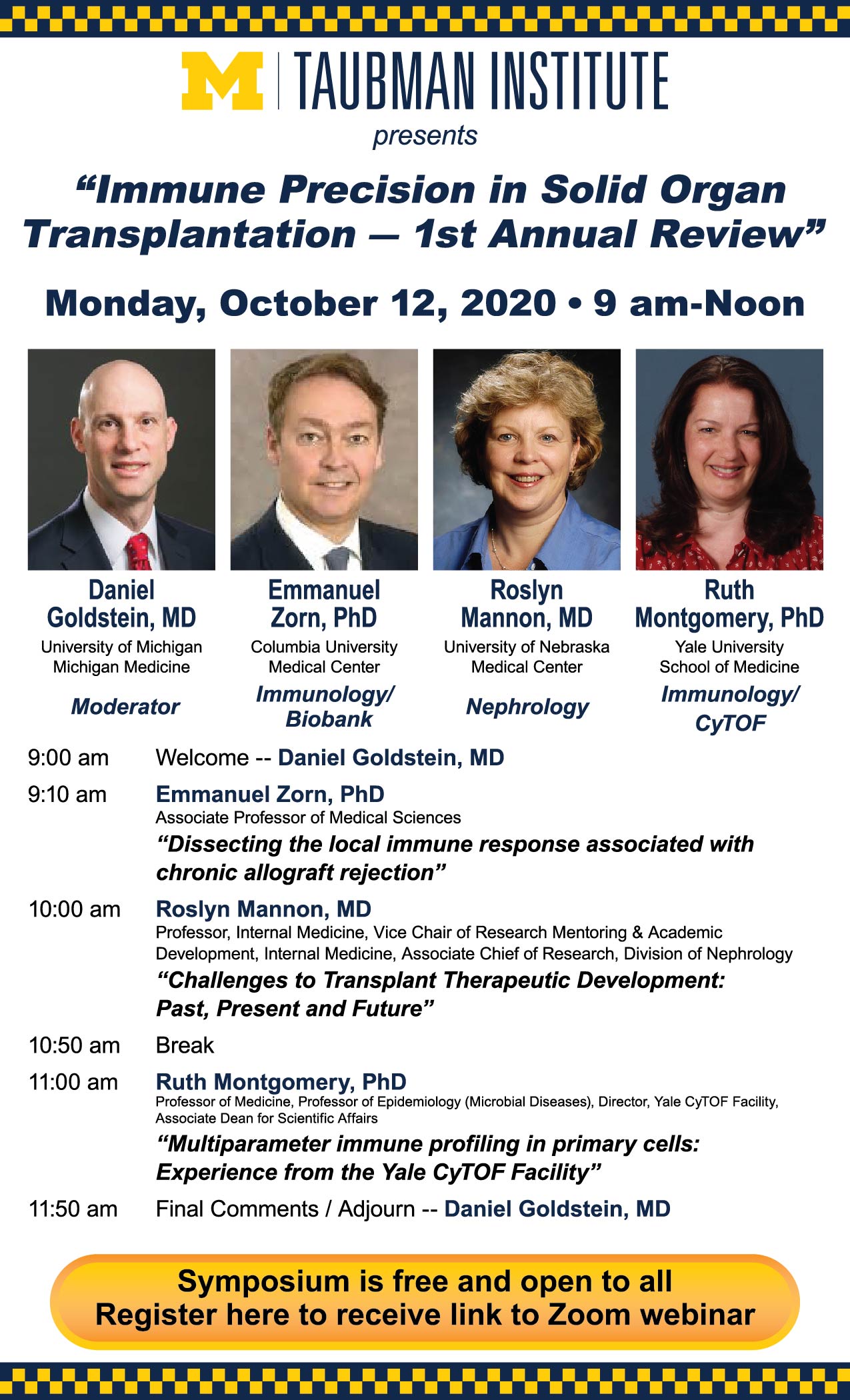Join Michigan Medicine’s Daniel Goldstein, MD and renowned human transplantation immunology researchers October 12 at 9 am-Noon for an update on their Taubman Institute Innovation Project (TIIP) that aims to refine the use of immune-suppression drugs in solid organ transplant patients.
Dr. Goldstein heads a team of three Michigan Medicine primary investigators in this TIIP, Development of a novel precision medicine approach in solid organ transplantation – or “ImPrec” for short. Vibha Lama, MD and Fei Wen, PhD are co-PIs.
Registration is required attend this free, informative Zoom webinar. All are welcome; click here to enroll.
Drugs that suppress the immune system keep the body from rejecting donated organs also lower the patient’s ability to fight off infections – and immune suppression can increase the risk of certain cancers.
Doctors aim for dosages that are high enough to prevent rejection, yet not so high that the patient is vulnerable to infections and cancer – but they have few tools for measuring these relative risks.
Developing a method to predict a patient’s risk of immunity-related side effects — instead of reacting after problems arise – is the goal of ImPrec. As the project approaches its first anniversary, Dr. Goldstein has asked the three experts to assist him and his team in a review the work they have done within the past year.
Emmanuel Zorn, PhD, Roslyn Mannon, MD and Ruth Montgomery, PhD are panelists in a morning session moderated by Dr. Goldstein.
Dr. Emmanuel Zorn is an Associate Professor of Medical Sciences at Columbia University Medical Center in New York City. He was previously a Senior Investigator at Massachusetts General Hospital and Assistant Professor of Surgery at Harvard Medical School. The primary focus of Dr. Zorn’s lab is on B cells and antibodies in mechanisms of rejection of kidney and heart transplants.
Dr. Roslyn Mannon is Professor, Internal Medicine, Vice Chair of Research Mentoring and Academic Development, Internal Medicine, Associate Chief of Research, Division of Nephrology at University of Nebraska College of Medicine. Her academic interests include concurrent studies in clinical and basic transplantation. Her laboratory utilizes small rodent models to understand recipient complications, with a focus on kidney allograft fibrosis, novel targets of chronic allograft injury, and the contribution of BK virus in chronic allograft injury.
Dr. Ruth Montgomery, PhD is Professor of Medicine and Professor of Epidemiology (Microbial Diseases); Director, Yale CyTOF Facility; and Associate Dean for Scientific Affairs at Yale Uni
versity. She is a cellular immunologist with particular expertise in use of novel technology for human translational studies. Her research employs systems wide studies to identify individual differences in immune responses that lead to divergent outcomes to infection. Her group focuses on effects of aging on innate immunity and individual variation influencing susceptibility to West Nile, dengue, Zika and COVID-19 viruses, among others.







